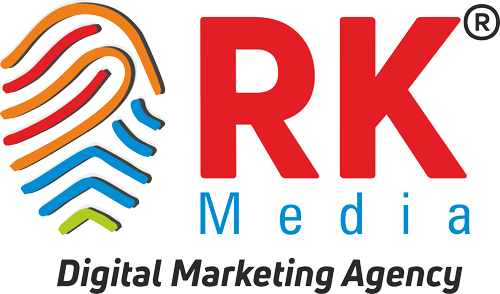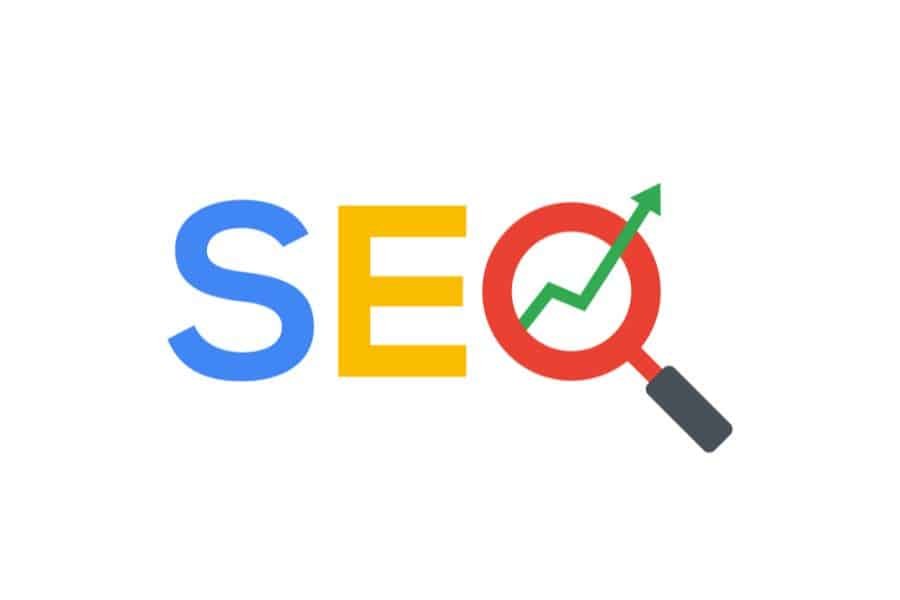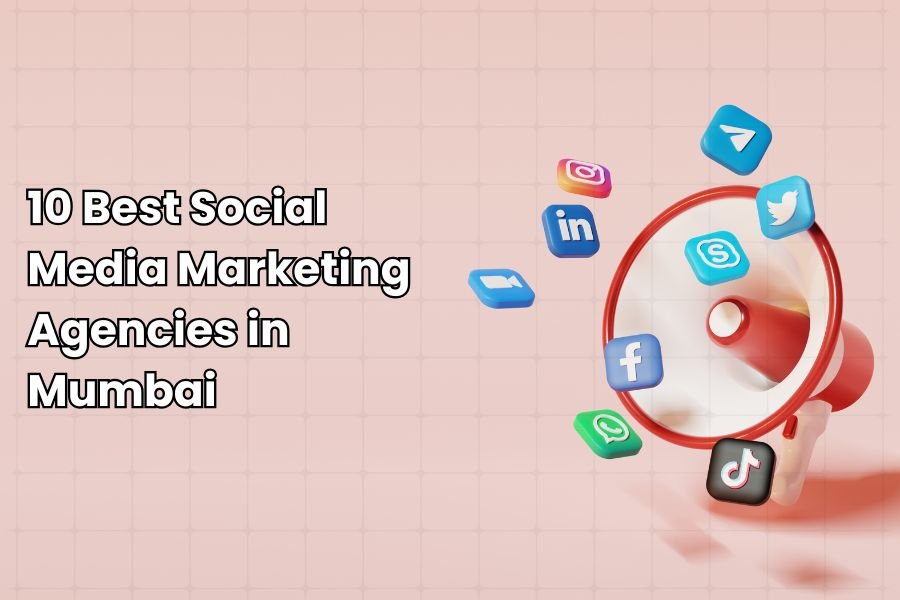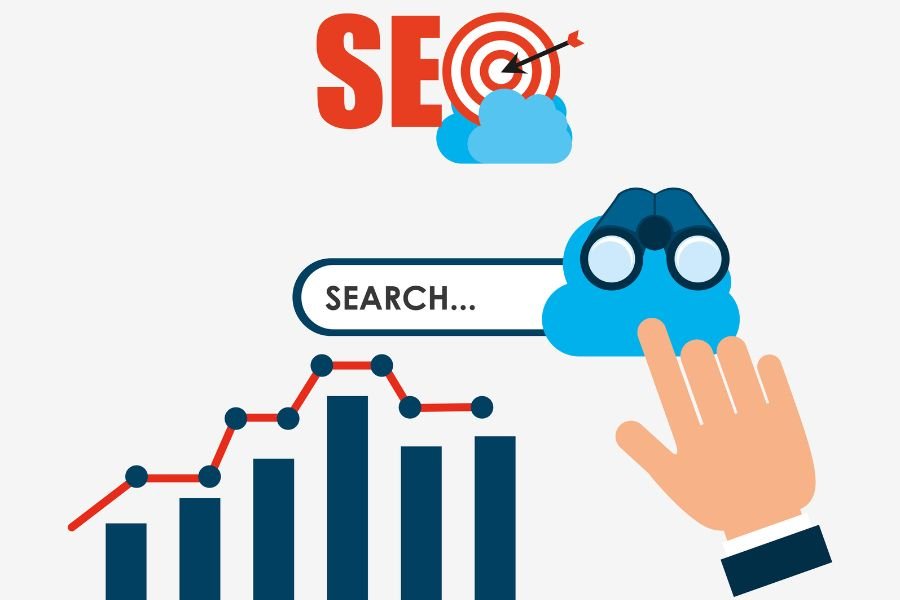Best Practices and Pro-Tips for Digital Marketing in Healthcare Industry
Introduction
In the fast-paced digital age, healthcare providers and organizations are continually seeking ways to connect with patients, enhance their online presence, and deliver valuable information. The intersection of healthcare and digital marketing presents a unique set of challenges and opportunities. To help healthcare professionals navigate this dynamic landscape, we’ve compiled a comprehensive guide on digital marketing healthcare industry best practices and pro tips.
The healthcare industry has traditionally been considered conservative and slow to adapt to technological advancements. However, in the last decade, it has undergone a profound transformation. This transformation is driven by several key factors:
- Consumer Empowerment: Patients and healthcare consumers are now more informed and proactive than ever. They actively seek health information online, research medical conditions, and read reviews about healthcare providers. Digital marketing allows healthcare organizations to engage with this empowered audience effectively.
- Regulatory Changes: Healthcare regulations, such as the Health Insurance Portability and Accountability Act (HIPAA), have evolved to accommodate digital advancements. These changes have facilitated secure and compliant digital marketing practices in healthcare.
- Digital Health Tools: The proliferation of digital health tools, mobile apps, and wearables has created vast amounts of health-related data. Digital marketing allows healthcare organizations to tap into this data to improve patient care and outcomes.
- Telehealth and Telemedicine: The COVID-19 pandemic accelerated the adoption of telehealth and telemedicine. Digital marketing played a pivotal role in promoting these services and educating patients on their benefits.
The Importance of Digital Marketing in Healthcare Industry
- Patient Engagement: Digital marketing allows healthcare providers to engage with patients and build long-term relationships. Through various channels like social media, email, and content marketing, they can provide valuable information, address patient concerns, and foster trust.
- Brand Awareness: Healthcare institutions can leverage digital marketing in healthcare industry to build and maintain their brand reputation. Consistent online presence and positive patient reviews enhance trust and credibility.
- Targeted Marketing: Digital marketing in healthcare industry enables healthcare providers to target specific demographics and geographic areas, ensuring their marketing efforts reach the most relevant audiences. This precision results in higher conversion rates and return on investment.
- Cost-Effective Marketing: Traditional healthcare marketing methods, such as TV and print advertising, can be expensive. Digital marketing offers cost-effective alternatives, making it accessible to a broader range of healthcare organizations, from small practices to large hospitals.
- Data-Driven Decisions: Digital marketing generates valuable data that can be used to assess the effectiveness of campaigns, identify trends, and make data-driven decisions. This level of insight enables continuous improvement and optimization.
Factors Responsible for the Growth of Digital Marketing in Healthcare Industry
The growth of the digital marketing in healthcare industry has been nothing short of extraordinary. Several key factors have driven this expansion:
- Increasing Internet Usage: With more people having access to the Internet and spending a significant amount of time online, the healthcare industry recognized the need to have a substantial digital presence to reach and engage potential patients.
- Search Engine Optimization (SEO): Healthcare providers started to understand the importance of appearing at the top of search engine results pages. SEO has become a crucial component of digital marketing for healthcare organizations, allowing them to compete in the digital landscape.
- Social Media: The integration of social media platforms in the digital marketing in healthcare industry has allowed providers to connect with patients on a more personal level, share health tips, and address concerns promptly.
- Content Marketing: Creating and sharing relevant, educational, and informative content has become a cornerstone of digital marketing in healthcare industry. This approach establishes healthcare providers as trusted sources of medical information.
- Patient Reviews: Online patient reviews and testimonials are powerful tools for healthcare marketing. Positive reviews can significantly impact the reputation and trustworthiness of a healthcare organization.
Understanding Digital Marketing in Healthcare Industry
Digital marketing in Healthcare industry refers to the use of digital channels, strategies, and technologies to promote healthcare services, connect with patients, and maintain a strong online presence. It encompasses a wide array of activities aimed at improving patient engagement, educating the public, and attracting potential patients. These activities include website optimization, content marketing, social media engagement, email marketing, paid advertising, and more.
Challenges of Digital Marketing in Healthcare Industry
While the benefits of digital marketing are evident, it comes with unique challenges:
- Regulations: The healthcare industry is subject to strict regulations, such as the Health Insurance Portability and Accountability Act (HIPAA). These regulations govern the use of patient data and privacy, making it imperative for healthcare marketers to navigate the digital landscape carefully.
- Trust and Credibility: Building trust online in healthcare is crucial. Patients must have confidence in the accuracy of the information provided. Healthcare providers must maintain a high level of credibility, ensuring that their digital content is accurate and up to date.
- Data Security: The collection and storage of patient data in digital marketing activities must comply with security standards. Any breaches can have serious consequences.
The Significance of an Online Presence in Healthcare
The healthcare industry’s digital transformation is not a mere trend; it’s a necessity. Patients today are more informed than ever, with the internet being their primary source of health-related information. As a result, healthcare providers must adapt to this changing landscape. Here’s why an online presence is critical:
- Patient Empowerment: The internet empowers patients to research their health concerns, symptoms, and treatment options. Healthcare providers who offer valuable information online can engage and educate patients, building trust and loyalty.
- Accessibility: An online presence ensures that your healthcare services are easily accessible to a wider audience. Patients can find information about your practice, services, and contact details at their convenience.
- Competitive Edge: In a competitive healthcare landscape, having a strong digital presence can set you apart from other providers. A well-optimized website and active social media accounts can make a significant difference in attracting patients.
Best Practices for Digital Marketing in Healthcare Industry
The healthcare industry has recognized the significance of a robust online presence and effective digital marketing strategies. However, digital marketing in healthcare industry comes with its unique challenges and ethical considerations. To ensure success and maintain the trust of patients and stakeholders, it’s essential to follow best practices that align with the industry’s regulations and values.
Website Optimization
A healthcare organization’s website is often the first point of contact for patients. Ensuring it’s user-friendly, mobile-responsive, and well-organized is crucial. Patients should easily find information about services, providers, and contact details. Use clear and concise language, and maintain an up-to-date blog section for educational content.
In the healthcare industry, where trust and credibility are paramount, a well-optimized website is essential for attracting and retaining patients. Let’s delve into the specifics of website optimization for healthcare:
- Mobile Responsiveness:
Mobile responsiveness means that your website is designed to adapt to various screen sizes and devices, ensuring a seamless and user-friendly experience for visitors on smartphones, tablets, and desktop computers. Healthcare consumers often search for health information and providers on their mobile devices, so a responsive design is crucial for capturing this audience.
- Page Speed and Performance:
Slow-loading pages can lead to high bounce rates, which negatively impact your website’s performance in search results. Optimizing page speed involves various factors, including image optimization, efficient coding, and leveraging content delivery networks (CDNs) to reduce server response times.
- On-Page SEO:
Search engine optimization (SEO) is a fundamental part of website optimization. On-page SEO involves optimizing individual pages of your website to improve their visibility in search engine results. Key practices include:
- Keyword Research: Identifying relevant keywords that potential patients might use when searching for healthcare services.
- Meta Tags: Crafting compelling and keyword-rich meta titles and descriptions for each page.
- Header Tags: Structuring your content with headers (H1, H2, H3) for better organization and search engine understanding.
- Image Alt Text: Including descriptive alt text for images to improve accessibility and SEO.
- Internal Linking: Linking relevant pages within your website to help users navigate and search engines understand your content better.
- SSL Certificate:
An SSL (Secure Sockets Layer) certificate is a standard security technology that establishes an encrypted link between a web server and a browser. This technology ensures that all data transmitted between the server and the browser remains private and secure. It’s a critical element for patient data security and builds trust with website visitors.
- Testimonials and Trust Signals:
Displaying patient testimonials and trust signals can enhance your website’s credibility. Share positive feedback and reviews from satisfied patients, along with any awards, accreditations, or certifications your healthcare organization has received.
Create Valuable Content
Content marketing plays a pivotal role in digital marketing in healthcare industry. It’s imperative to provide accurate, informative, and engaging content that addresses the needs and concerns of patients. This includes blog articles, videos, infographics, and social media posts. Use search engine optimization (SEO) techniques to improve your content’s visibility in search results.
Valuable content not only educates and informs but also addresses the needs and concerns of patients. It can take various forms, such as articles, blog posts, videos, infographics, and more. Let’s explore the key elements of creating valuable content for healthcare:
- Educational Content:
One of the primary purposes of healthcare content is to educate patients. Provide information about medical conditions, treatment options, preventive measures, and healthy lifestyle choices. Use clear, jargon-free language to ensure patients can easily understand the content.
- Preventive Health Tips:
Educate patients on preventive measures and healthy habits. Content on topics like nutrition, exercise, stress management, and disease prevention can help patients lead healthier lives.
- Case Studies and Patient Stories:
Sharing real-life success stories and patient experiences can be incredibly valuable. It humanizes the healthcare experience and provides hope and inspiration for others facing similar challenges.
- Relevant and Timely Information:
Healthcare is an ever-evolving field. Your content should be up-to-date with the latest medical research, treatment guidelines, and health trends. Timeliness is essential, especially when discussing health topics that are subject to change.
Engage on Social Media
Select the right social media platforms for your healthcare organization. Share content regularly and engage with your audience. Use platforms like Facebook, Twitter, and LinkedIn to share informative articles, health tips, and news updates. Instagram can be great for visual content, such as videos and images of your healthcare facility or wellness tips.
Let’s explore strategies for effectively utilizing these platforms-
- Choose the Right Platforms:
Not all social media platforms are equally suitable for healthcare organizations. Select the platforms that align with your target audience and marketing goals. Common platforms for healthcare include Facebook, Instagram, Twitter, LinkedIn, and YouTube.
- Use Hashtags:
Incorporate relevant healthcare and medical hashtags in your posts to increase the visibility of your content and reach a wider audience.
- Patient Stories:
Encourage patients to share their stories and experiences. These personal narratives can inspire and reassure others facing similar health challenges.
- Patient Education Campaigns:
Launch campaigns that focus on specific health topics or awareness days. For example, during Breast Cancer Awareness Month, share information about early detection and prevention.
- Health Challenges and Contests:
Organize health challenges or contests related to fitness, nutrition, or general well-being. These interactive activities can foster a sense of community and engagement.
Utilize Email Marketing
Email marketing is a powerful tool in healthcare marketing when used ethically and compliant with regulations, such as HIPAA (Health Insurance Portability and Accountability Act). Send newsletters, appointment reminders, and educational content to your patients. Personalize your emails for a more significant impact.
- Appointment Reminders:
Send automated appointment reminders to help patients stay organized and reduce no-show rates. This is especially important for healthcare providers with multiple appointments, such as medical practices, dental offices, and clinics.
- Educational Newsletters:
Regularly share educational newsletters that provide information on health topics, preventive care, wellness tips, and updates about medical advancements. These newsletters can help patients stay informed and proactive about their health.
- Survey and Feedback:
Gather patient feedback through surveys sent via email. This can help you continuously improve your services and understand patient satisfaction.
Paid Advertising
Paid advertising, such as Google Ads or social media advertising, allows you to target specific demographics or keywords. This can be particularly useful for promoting services, announcing events, or sharing important healthcare news. Make sure your ad campaigns align with your organization’s values and provide valuable information to the audience.
Let’s explore strategies for paid advertising in the healthcare industry-
- Google Ads:
Google Ads is a powerful platform for healthcare advertising. It allows you to bid on keywords relevant to your services, ensuring that your healthcare facility appears at the top of search engine results when potential patients are looking for specific treatments or providers.
- Quality Score:
In the case of Google Ads, a high-quality score is crucial. It affects your ad’s placement and the cost per click. Ensure that your landing pages are relevant, load quickly, and provide valuable content.
- A/B Testing:
Experiment with different ad copy, visuals, and calls to action to identify the most effective combinations. A/B testing allows you to refine your advertising campaigns for better results.
- Ad Extensions:
Use ad extensions to provide additional information to potential patients. This can include your location, contact details, and direct links to relevant pages on your website.
Reputation Management
Maintaining a positive online reputation is crucial in healthcare. Encourage satisfied patients to leave positive reviews, and respond professionally to negative ones. Demonstrating that you care about patient feedback can build trust and show your commitment to improvement.
- Monitor Online Presence:
The first step in reputation management is to monitor your online presence. This involves tracking mentions, reviews, and comments on various online platforms, including social media, review websites, and healthcare-specific directories.
- Engage with Patients:
Actively engage with patients, addressing their concerns and feedback. Prompt and professional responses to both positive and negative comments can demonstrate your commitment to patient care.
- Encourage Positive Reviews:
Encourage satisfied patients to leave positive reviews. This can be done through follow-up emails or during in-office visits. Ensure the process is simple and user-friendly.
- Transparency:
Be transparent in your interactions with patients and the public. Provide clear information about your healthcare services, costs, and outcomes. Misleading or ambiguous information can damage your reputation.
Tips for Digital Marketing in Healthcare Industry
While the best practices mentioned above are essential, here are some pro tips to take your Digital Marketing in Healthcare industry to the next level-
1. Leverage Video Content: Patients often prefer watching videos to reading lengthy articles. Create informative and engaging video content about your services, providers, and healthcare topics.
2. Focus on Local SEO: For healthcare providers, local search engine optimization is vital. Optimize your online presence to appear in local search results, as many patients look for nearby healthcare facilities.
3. Prioritize Patient Education: Providing valuable information to patients not only empowers them but also builds trust. Offer educational resources, webinars, or workshops on relevant health topics.
4. Embrace Analytics and Data: Use data-driven insights to measure the effectiveness of your marketing efforts. By analyzing the data, you can make informed decisions and continually improve your strategies.
Conclusion
In the ever-evolving landscape of digital marketing in healthcare industry, success depends on staying informed, adaptable, and patient-focused. The importance of digital marketing in healthcare industry cannot be overstated. It empowers healthcare providers to engage with patients, improve brand visibility, and make data-driven decisions.
The digital marketing in healthcare industry is at the forefront of shaping the future, enabling patients and providers alike to benefit from this transformative trend. Implementing these best practices and pro tips can help healthcare providers and organizations navigate the digital realm effectively while providing the highest level of care to their patients.
At RK Media Digital Marketing Agency, we are committed to helping healthcare professionals thrive in this dynamic environment. Contact us today to discuss how we can assist you in achieving your digital marketing goals and improving patient engagement. Your success is our priority.
Image Reference: Freepik
Disclaimer: All trademarks, logos, and brand names are the property of their respective owners. All company, product, and service names used in this website are for identification purposes only. Use of these names, trademarks, and brands does not imply endorsement.
